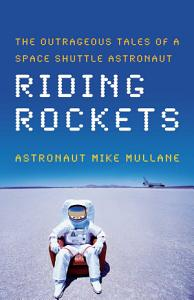If at first you don't succeed....
-
Try, try, try again.
I'm not sure if that's 3 "tries" or 4. Regardless, looks like SpaceX is out of "tries" either way.
All we really know for sure is that at 5 minutes and 47 seconds into the flight, one of Starship's three Raptor engines relit to begin the final landing sequence, and then the engine-bay camera cut out in SpaceX's webcast. Contact with the vehicle was lost, at least in terms of live video pictures. Shortly after this, pieces of the Starship vehicle began raining down on the launch site, and there were reports of a series of small explosions.
It's always better when the craft returns in one piece, rather than "pieces raining down."
Fortunately, as part of its iterative development program, SpaceX is building a Starship vehicle at a rate of every two to three weeks. So the next prototype—likely to be SN15 as the company skips ahead toward a more advanced version—may be ready to fly in several weeks. Still, SpaceX would have liked to have gotten this one back in one piece.
-
Watched a documentary a few nights ago on the Saturn rocket program. Those guys with slide-rules were pretty sharp.
Wonder what they could have done with computers?
-
I think in general they made sure they had larger margin for error back then. And of course they had more people to do double-checking. And very big budgets.
@copper said in If at first you don't succeed....:
I think in general they made sure they had larger margin for error back then.
I think this is true. I was talking to some engineering friends and they said the same thing. Before, 98% was good enough. Now, you need 99.5% or higher (for example)
-
America's space shuttle explosions betray a far larger error than had ever been calculated.
@horace said in If at first you don't succeed....:
America's space shuttle explosions betray a far larger error than had ever been calculated.
I highly recommend that you read Mike Mullane's memoir, Riding Rockets: The Outrageous Tales of a Space Shuttle Astronaut. Mike Mullane is a retired USAF Colonel and NASA astronaut who was a crew member aboard three Space Shuttle missions in the 1980s. I have had the pleasure on several occasions to meet with and sit down for dinner and drinks with Col. Mullane when our industry association engaged him as a guest speaker at a few of our technical symposia. He is highly critical of what he refers to as the normalization of deviance culture that characterized NASA in the lead up to the Challenger disaster and beyond.
Here is Mike's website:
https://mikemullane.com/product/stopping-normalization-of-deviance/

-
@horace said in If at first you don't succeed....:
America's space shuttle explosions betray a far larger error than had ever been calculated.
I highly recommend that you read Mike Mullane's memoir, Riding Rockets: The Outrageous Tales of a Space Shuttle Astronaut. Mike Mullane is a retired USAF Colonel and NASA astronaut who was a crew member aboard three Space Shuttle missions in the 1980s. I have had the pleasure on several occasions to meet with and sit down for dinner and drinks with Col. Mullane when our industry association engaged him as a guest speaker at a few of our technical symposia. He is highly critical of what he refers to as the normalization of deviance culture that characterized NASA in the lead up to the Challenger disaster and beyond.
Here is Mike's website:
https://mikemullane.com/product/stopping-normalization-of-deviance/

-
@renauda thanks for the recommendation!
I remember hearing of that book, but somehow, it slipped under my radar. Sounds like a good read.
I'll see if I can find it and put it in my queue!
-
It is a well written and engaging narrative. A page turner. It certainly makes you think twice or three times about cutting corners in doing your job for the sake of simply accomplishing a specific directive, goal or task.
-
The discovery of a grave near miss on the second shuttle mission was not communicated to key safety personnel ultimately resulting in the fatal Challenger mission 4-years later.
Wow...
-
Then 2 years later Atlantis was delayed by a hydrogen leak and sustained hail damage, and more delay, while being rolled back for repair.
The pilot on that mission used to rent my plane at the flight school where I taught, small world. He later commanded the shuttle and the space station.
One of the other instructors at our school was a former commander of the Air Force Thunderbirds.
So we would have discussions about who was cooler. The Thunderbirds is about as cool as you can get, but the astronaut wins.
-
Then 2 years later Atlantis was delayed by a hydrogen leak and sustained hail damage, and more delay, while being rolled back for repair.
The pilot on that mission used to rent my plane at the flight school where I taught, small world. He later commanded the shuttle and the space station.
One of the other instructors at our school was a former commander of the Air Force Thunderbirds.
So we would have discussions about who was cooler. The Thunderbirds is about as cool as you can get, but the astronaut wins.
@copper said in If at first you don't succeed....:
Then 2 years later Atlantis was delayed by a hydrogen leak and sustained hail damage, and more delay, while being rolled back for repair.
The pilot on that mission used to rent my plane at the flight school where I taught, small world. He later commanded the shuttle and the space station.
One of the other instructors at our school was a former commander of the Air Force Thunderbirds.
So we would have discussions about who was cooler. The Thunderbirds is about as cool as you can get, but the astronaut wins.
Hahaha awesome. And yes, small world!